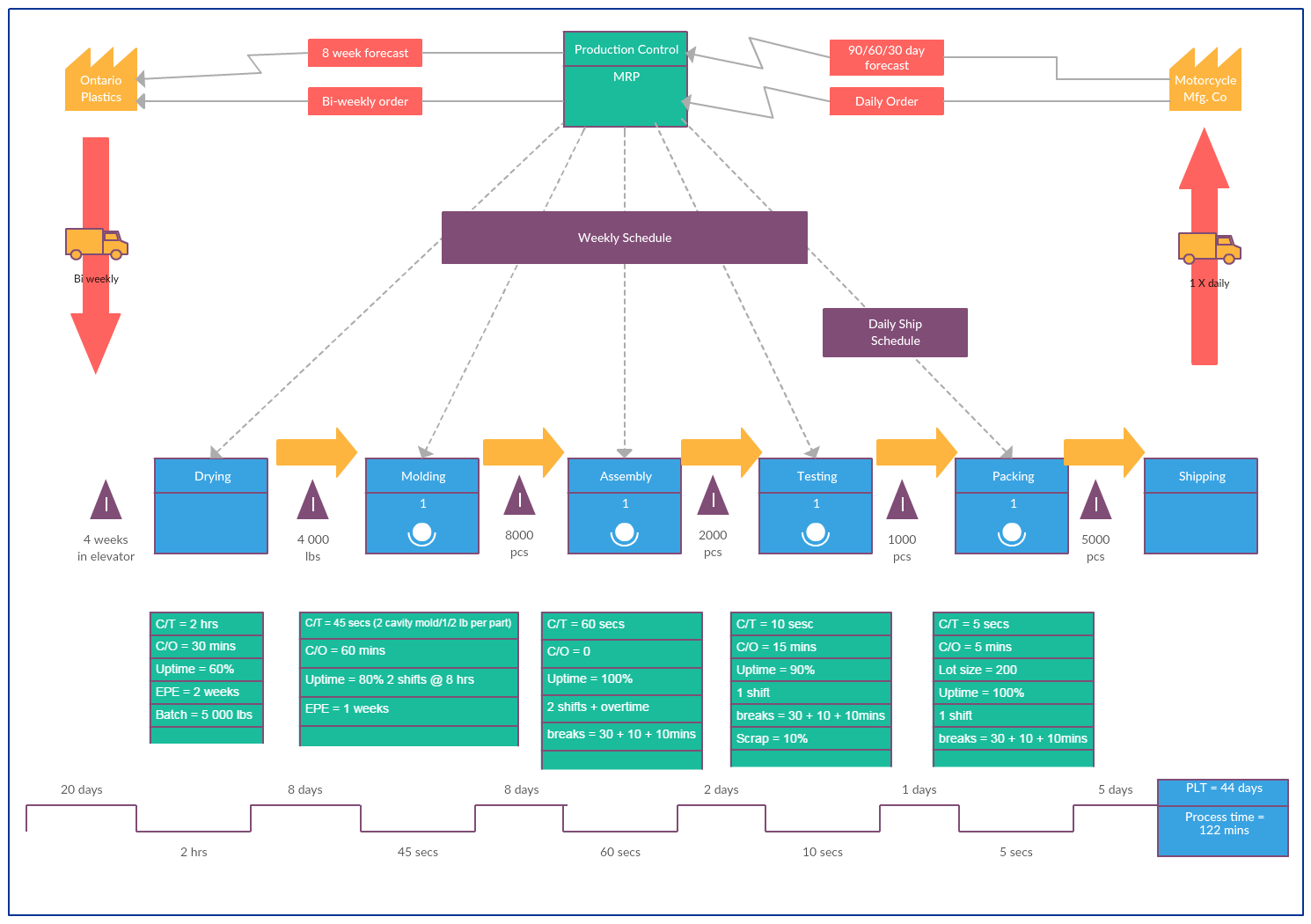
An industrial engineer is responsible for creating and implementing processes that optimize resource utilization and eliminate waste. They work in different industries to develop processes that are beneficial for their customers in a variety ways. They analyze production schedules, design specifications, workflows, and other factors to improve the efficiency of company processes. Industrial engineers also analyze the production process efficiency to increase profitability. They can also improve the overall quality and value of products and services.
Requirements for an industrial engineer
The role of an Industrial Engineer is crucial in a manufacturing organisation. This person uses innovative design methods to create efficient operations for the natural or organic food industries. The Industrial Engineer works closely with customers to develop innovative solutions and lead dynamic projects to improve the manufacturing industry. To qualify for this job, an individual must be qualified and able to perform all essential duties satisfactorily. Industrial engineers should be familiar with AutoCAD, Pro-E and must have a good understanding of advanced product quality planning as well as the approval and approval processes for parts.

An Industrial Engineer's job entails designing and testing integrated systems to maximize efficiency. This job is not limited to this. It also includes studying human work factors to increase product quality and efficiency. Other responsibilities include logistics and cost analysis as well as guest coordination. In addition, this person must be proficient in advanced technical skills such as Microsoft Office. You will also need experience in logistics, manufacturing, and systems design. Technical skills are essential to be able to do your job in Orlando.
Industrial engineer salaries
The salaries for Industrial & Manufacturing Engineers are very attractive if you're looking to make a career out of your Orlando, FL home. Orlando is one of the best places to live, with an average salary of $80,325 per year. This is 6% less than the national average and 9% below the New York, NY average. Orlando has a salary range of $64,260- $96,390. The middle 67% earn $85,000 per annum, while the top 10 percent earn $102,000.
Industrial Engineers' salaries in Orlando range from $89700 USD to $114,000.300 USD. Industrial engineers' salaries can vary, as with all careers. These figures are based upon the average salary of an Industrial Engineer with 5-10 years experience. However, the average salary for an Industrial Engineer with five to ten years of experience is almost double that of someone with less experience. Different industrial engineers may have different pay rates.
Responsibilities and responsibilities of an industrial engineer
This role will require you to identify the most effective processes and strategies for improving them. The Industrial Engineer will design and implement flexible, efficient and effective processes to meet customer expectations and meet business goals. The Industrial Engineer is responsible for many tasks such as Process Improvement, Capacity Planning and Reporting, Cost Analysis, Data Analysis, Capital Project Management and Discrete Events Simulation. It is also expected that you will perform time studies, observations, and contribute to cross-functional improvement efforts.

Strong communication skills are required, as well as engineering experience and a strong grasp of statistical analysis, to be able do this job. The industrial engineers work closely with the management to create design standards and manage moderately complicated industrial engineering projects. They will analyse data and produce statistical reports to improve quality, process flow, and standard times. They will coordinate key research and produce key metrics reports.
FAQ
What is the importance of logistics in manufacturing?
Logistics are an essential part of any business. They enable you to achieve outstanding results by helping manage product flow from raw materials through to finished goods.
Logistics plays a significant role in reducing cost and increasing efficiency.
What is the importance of automation in manufacturing?
Not only is automation important for manufacturers, but it's also vital for service providers. Automation allows them to deliver services quicker and more efficiently. They can also reduce their costs by reducing human error and improving productivity.
What is the responsibility for a logistics manager
Logistics managers make sure all goods are delivered on schedule and without damage. This is done by using his/her experience and knowledge of the company's products. He/she also needs to ensure adequate stock to meet demand.
Why automate your factory?
Modern warehousing has seen automation take center stage. The rise of e-commerce has led to increased demand for faster delivery times and more efficient processes.
Warehouses should be able adapt quickly to new needs. In order to do this, they need to invest in technology. Automation warehouses can bring many benefits. Here are some reasons why it's worth investing in automation:
-
Increases throughput/productivity
-
Reduces errors
-
Improves accuracy
-
Boosts safety
-
Eliminates bottlenecks
-
Companies can scale more easily
-
Increases efficiency of workers
-
Gives you visibility into all that is happening in your warehouse
-
Enhances customer experience
-
Improves employee satisfaction
-
Minimizes downtime and increases uptime
-
Ensures quality products are delivered on time
-
Eliminates human error
-
Assure compliance with regulations
How can manufacturing avoid production bottlenecks
To avoid production bottlenecks, ensure that all processes run smoothly from the moment you receive your order to the time the product ships.
This includes both planning for capacity and quality control.
Continuous improvement techniques such Six Sigma can help you achieve this.
Six Sigma is a management system used to improve quality and reduce waste in every aspect of your organization.
It seeks to eliminate variation and create consistency in your work.
What are the four types of manufacturing?
Manufacturing is the process by which raw materials are transformed into useful products through machines and processes. It can involve many activities like designing, manufacturing, testing packaging, shipping, selling and servicing.
What makes a production planner different from a project manger?
A production planner is more involved in the planning phase of the project than a project manger.
Statistics
- In 2021, an estimated 12.1 million Americans work in the manufacturing sector.6 (investopedia.com)
- According to a Statista study, U.S. businesses spent $1.63 trillion on logistics in 2019, moving goods from origin to end user through various supply chain network segments. (netsuite.com)
- In the United States, for example, manufacturing makes up 15% of the economic output. (twi-global.com)
- [54][55] These are the top 50 countries by the total value of manufacturing output in US dollars for its noted year according to World Bank.[56] (en.wikipedia.org)
- Job #1 is delivering the ordered product according to specifications: color, size, brand, and quantity. (netsuite.com)
External Links
How To
How to Use 5S to Increase Productivity in Manufacturing
5S stands for "Sort", 'Set In Order", 'Standardize', & Separate>. Toyota Motor Corporation developed the 5S method in 1954. This methodology helps companies improve their work environment to increase efficiency.
The idea behind standardizing production processes is to make them repeatable and measurable. This means that daily tasks such as cleaning and sorting, storage, packing, labeling, and packaging are possible. Workers can be more productive by knowing what to expect.
There are five steps to implementing 5S, including Sort, Set In Order, Standardize, Separate and Store. Each step requires a different action, which increases efficiency. For example, when you sort things, you make them easy to find later. When items are ordered, they are put together. After you have divided your inventory into groups you can store them in easy-to-reach containers. Finally, when you label your containers, you ensure everything is labeled correctly.
This requires employees to critically evaluate how they work. Employees need to understand the reasons they do certain jobs and determine if there is a better way. They must learn new skills and techniques in order to implement the 5S system.
The 5S method not only increases efficiency but also boosts morale and teamwork. As they begin to see improvements, they feel motivated to continue working towards the goal of achieving higher levels of efficiency.